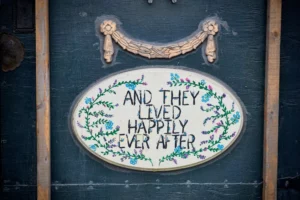One of the greatest things about being alive in our day is the incalculable access we have to historical wisdom. We no longer have to be scholars buried away in a library somewhere to be familiar with the writings of great thinkers the likes of Augustine, Aquinas, Calvin, Spurgeon, Chesterton and Lewis (to name just a few). Future historians will likely observe our increased access to knowledge and contemplate what we did with it.
From this smorgasbord of wisdom, I’ve developed a few historical favorites, times and places which have caught my interest. The era I love the most is that of the Puritans. I find them fascinating. From the depth of their theological works to their intensity in following God, the Puritans were in a class all by themselves. One thing is crystal clear: The Puritans are long gone, and we are nothing like them.
That being said, I believe we have much to learn from their example. One area the Puritans provide particular insight and wisdom is for those pursuing marriage. Their times may have been different, but their wisdom can serve us centuries later.
First of all, parental consent and involvement was very important in the forming of a marriage, and Puritan fathers felt personal responsibility for ensuring their children made a good match. In the day of the Puritans, young women desiring marriage would often lean on their fathers to help find a husband. Young men would approach their own fathers first before talking to the father of a woman they wished to pursue. Puritan engagements were a family affair, and the fathers were very involved in their children’s choice of a spouse.
Puritan young men began thinking about and preparing for marriage at a much younger age than is common today. It was understood that young men should wait to pursue marriage until they were able to provide financially for a wife. When they were ready, Puritan teachers provided clear instruction on what to seek in a potential spouse. Theologian J.I. Packer explains, “The wise way to form an opinion about possible partners is to find out their reputation, watch how they act in company, how they dress and talk, and note whom they select as friends.”
The Puritans taught their youth to look for character and lasting affection. They did leave room for romantic feelings, but discouraged young people from making decisions based solely on romance alone. Again, Packer explains, “In choosing a spouse one should look, not necessarily for one whom one does love, here and now, … but for one whom one can love with steady affection on a permanent basis.” Puritan young people were to primarily look for a lifelong friend.
Another interesting emphasis of the Puritans was that God is the maker of marriages. The Puritans believed those couples seeking “espousal” should be active in prayer, seeking whether God was knitting their two hearts together. Puritan Daniel Rogers described it:
Marriage love is often a secret work of God, pitching the heart of one party upon another for no known cause; and therefore when this strong lodestone attracts each to the other, no further questions need to be made but such a man and such a woman’s match were made in heaven, and God hath brought them together.
Overall, the Puritans had a very high view of marriage. As Thomas Gataker said, marriage was “one of the greatest outward blessings that in this world man enjoyeth.” They recognized God made marriage for procreation, but often listed companionship before procreation when listing God’s purposes for marriage. Puritan Pastor Richard Baxter said, “It is a mercy to have a faithful friend that loveth you entirely, … to whom you may open your mind and communicate your affairs … And it is a mercy to have so near a friend to be a helper to your soul and … to stir up in you the grace of God.”
The Puritans were cautious and careful with marriage for the sake of their own happiness. Gataker explains, “There is no society more near, more entire, more needful, more kindly, more delightful, more comfortable, more constant, more continual, than the society of man and wife, the main root, source, and original or all other societies.” It’s no surprise then that Puritan marriages were seemingly unbreakable by today’s standards.
If the Puritans could see us today, they would be shocked at some of the ways we enter into marriage. They would likely notice our emphasis on romance and physical attraction. They might be concerned about the way many young people seem to date in vacuum, bereft of the counsel and wisdom of their parents and trusted family friends. They would likely counsel young people to look first for someone who’ll be a lifelong friend, a beloved companion, and a trusted helper throughout life’s ups and downs. Above all, the Puritans would encourage us to marry well and marry for life for the sake of our own happiness. May we hear and heed them.
[Note: Several quotations are taken from A Quest For Godliness: The Puritan Vision of the Christian Life by J.I. Packer. See Chapter 16 “Marriage and Family in Puritan Thought” for more on this topic.]










